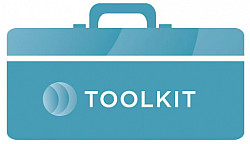Rights Enforcement Toolkit

Victims’ rights are rights personally held by the victim that can be legally asserted during the criminal case. Independent legal representation is absolutely critical to making these rights meaningful. In this Toolkit are the tools that will help practitioners effectively assert and seek enforcement of their clients’ rights. For use and distribution of Toolkit materials, reference the disclaimer at the end of this page.
The Toolkit has three parts: Pretrial, Trial, Post-Trial. Whether you are entering a case pretrial, during trial, or post-trial, because victims’ rights can arise at any time, reviewing all of the tools is critical. The tools come in the form of video tutorials of rights, flowcharts that guide you through the how and when of asserting rights, checklists to ensure you are making all of the best arguments, and sample pleadings.
The Toolkit is meant as an overview; because every case is complex and every survivor unique, NCVLI’s legal team is ready to provide in-depth technical assistance. Request assistance by clicking here.
*NCVLI’s online Law Library contains many additional resources that are designed to help practitioners assert and protect victims’ rights in a variety of contexts. Resources include in-depth legal articles as well as national surveys, covering important victims’ rights laws in all 50 states plus Washington D.C. and the federal system. To access the Law Library, click here.
NCVLI’s Know Your Rights Quicktool videos provide a general overview of victims’ rights. To access the Know Your Rights Quicktools, click here.
Pretrial
Trial
Post-Trial
Use/Distribution Request: The resources and videos that comprise NCVLI’s Rights Enforcement Toolkit are copyrighted and may be used for training/educational use without further permission, as long as the National Crime Victim Law Institute’s authorship is explicitly acknowledged in the training materials, along with a link to NCVLI’s website (www.ncvli.org). For all other permissions, please send your inquiry to ncvli@lclark.edu.
Portions of this Toolkit supported by Grant No. 2012-TA-AX-K030 awarded by the Office on Violence Against Women, U.S. Department of Justice and others supported by Grant No. 2017-VF-GX-K026, awarded by the Office for Victims of Crime, Office of Justice Programs, U.S. Department of Justice. The opinions, findings, conclusions, and recommendations expressed in these materials are those of the author(s) and do not necessarily reflect the views of the Office on Violence Against Women, U.S. Department of Justice or the Office for Victims of Crime, Office of Justice Programs, U.S. Department of Justice.